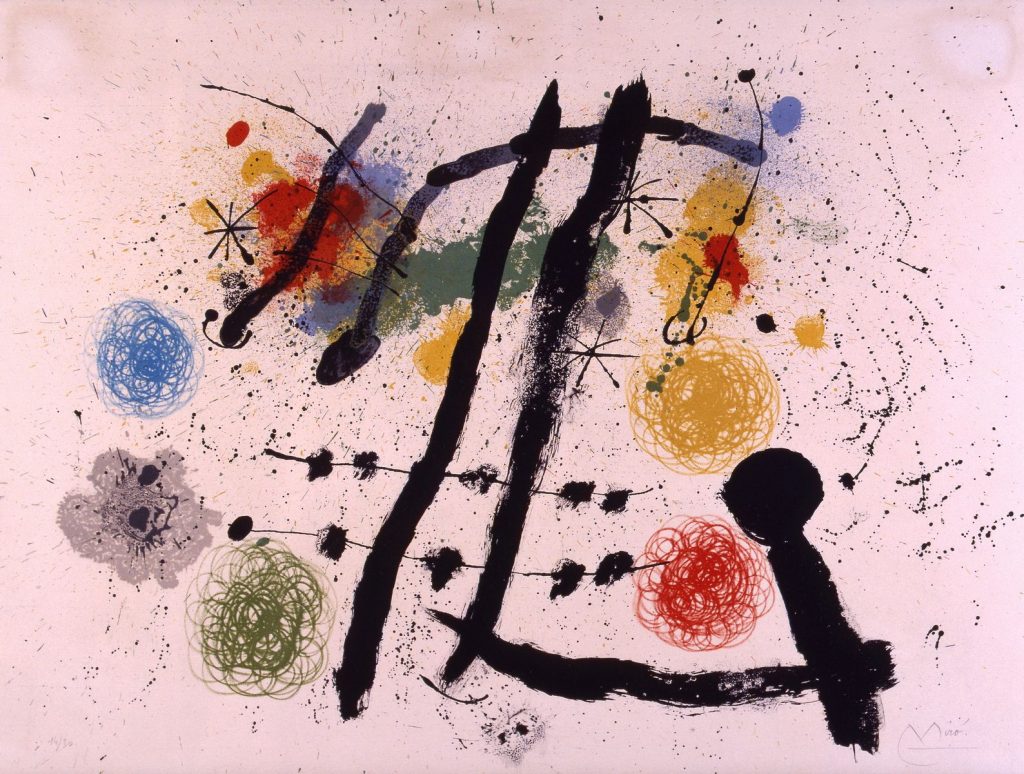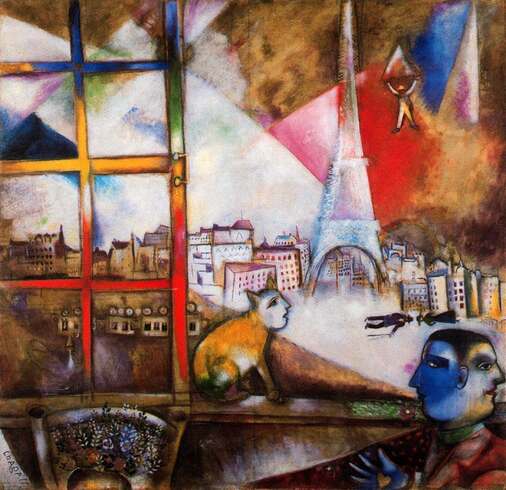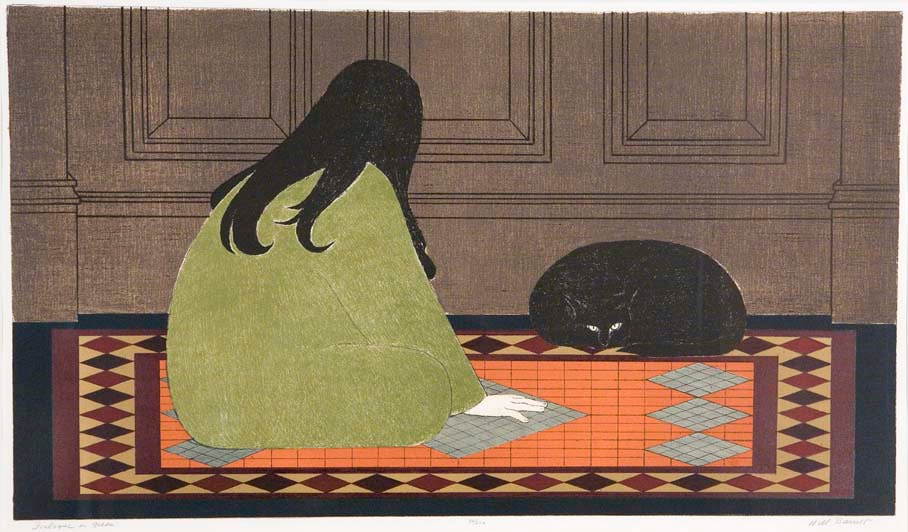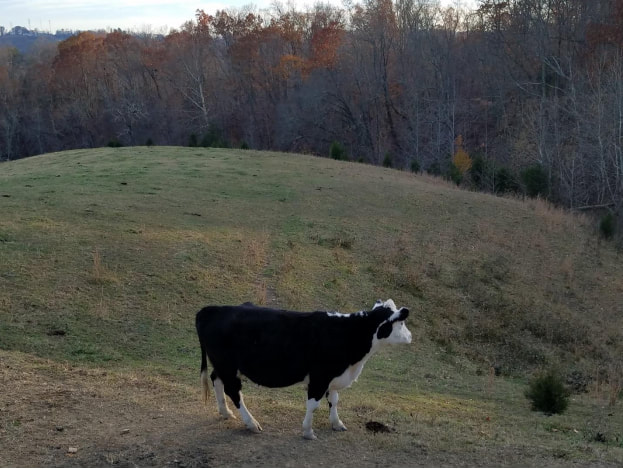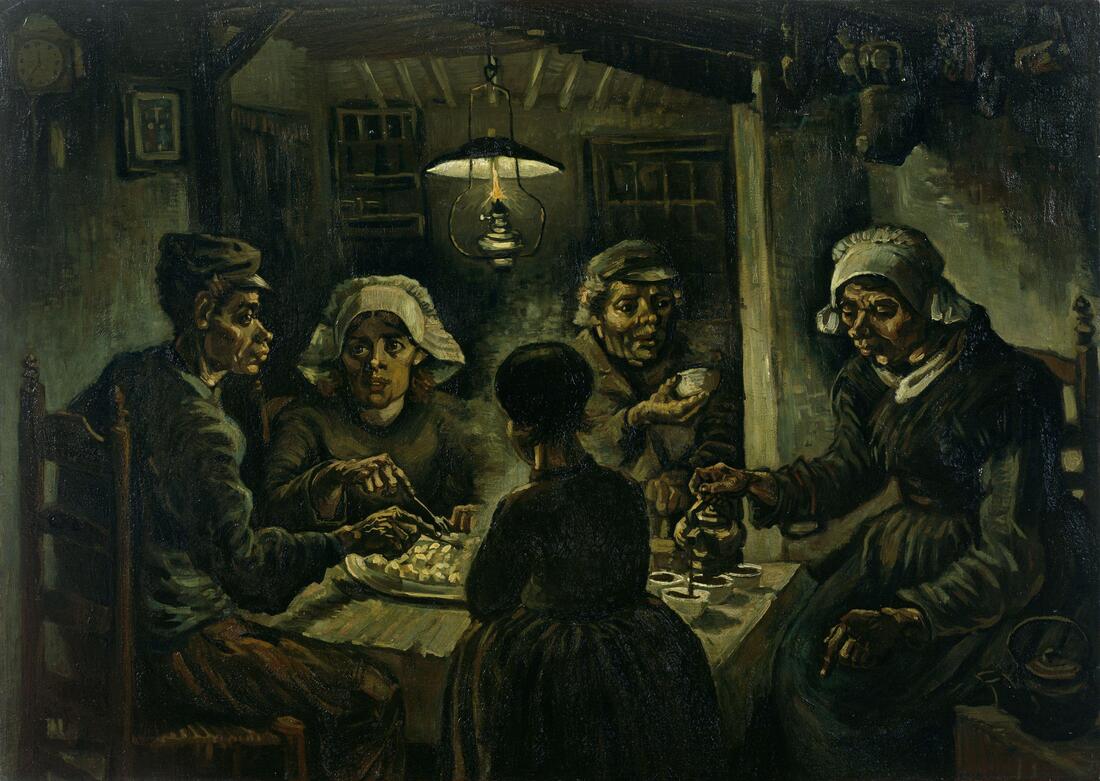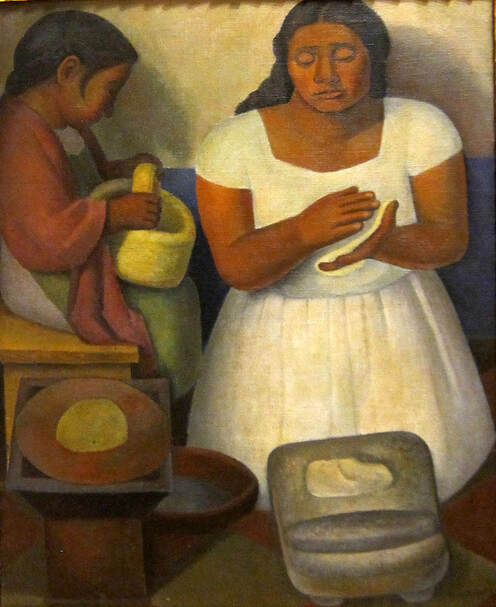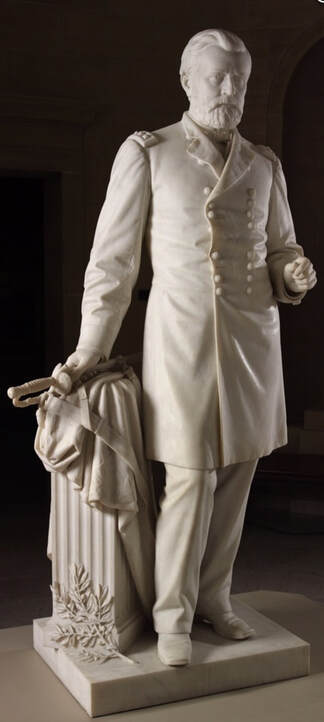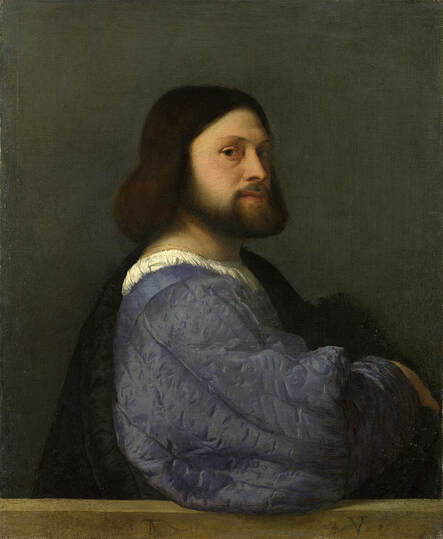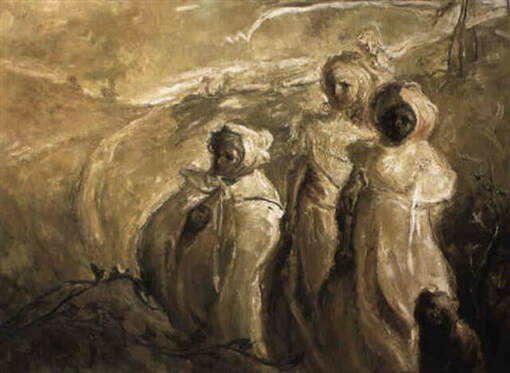|
Ekphrastic Writing Challenge
Join us for biweekly ekphrastic writing challenges. See why so many writers are hooked on ekphrastic! We feature some of the most accomplished influential poets writing today, and we also welcome emerging or first time writers and those who simply want to experience art in a deeper way or try something creative. Accepted responses for the last challenge will be published next Friday. The prompt is Hors du Cercles, by Joan Miro. Deadline is midnight, June 14, 2019. The Rules 1. Use this visual art prompt as a springboard for your writing. It can be a poem or short prose (fiction or nonfiction.) You can research the artwork or artist and use your discoveries to fuel your writing, or you can let the image alone provoke your imagination. 2. Write as many poems and stories as you like. Send only your best works or final draft, not everything you wrote. 3. Paste your entry in the body of your email. You can include a word document, PDF, or link to Google Drive, etc, but in the event we can't open or access the file, we need a ready copy in the email. 4. USE THIS EMAIL ONLY. Submissions sent to other Ekphrastic email addresses will not likely be read in time, or by the right person, and will be discarded without response. Send your work to [email protected]. Challenge submissions sent to the other inboxes will most likely be lost as those are read in chronological order of receipt, weeks or longer behind, and are not seen at all by guest editors. They will be discarded. Sorry. 5.Include JOAN MIRO WRITING CHALLENGE in the subject line in all caps please. 6. Include your name and a brief bio. If you do not include your bio, it will not be included with your work, if accepted. Even if you have already written for The Ekphrastic Review or submitted other works and your bio is "on file" you must include it in your challenge submission. Do not send it after acceptance or later; it will not be added to your poem. Guest editors may not be familiar with your bio or have access to archives. We are sorry about these technicalities, but have found that following up, requesting, adding, and changing later takes too much time and is very confusing. 7. Late submissions will be discarded. Sorry. 8. Deadline is midnight, June 14, 2019. 9. Please do not send revisions, corrections, or changes to your poetry or your biography after the fact. If it's not ready yet, hang on to it until it is. 10. Selected submissions will be published together, with the prompt, one week after the deadline. 11. Rinse and repeat with upcoming ekphrastic writing challenges! NEWS We have been featuring occasional guest editors for the ekphrastic challenges. We're hoping this will inspire us in unexpected ways, add new flavours and perspectives to the journal, foster community, and widen readership. We have Kyle Laws and Janette Schafer coming up later this spring.
0 Comments
The Underside of Colour Chagall invites me to his house; he knows I love this painting He leaves the front door open, I arrive early. Seated on the right side of the parlor, locket in my palm, I wait Chenille, nervous cat, emerald green tail, sits on the sill listening. Shouts from the street are loud, one side of the window is open Aromatic warm baguettes, clinking cups from the café below. Colours roar across the sky Swaths of vermillion, streaks of royal blue, icy white shafts illuminate the sky, turning the Eiffel Tower shimmering white The spire shares light with clusters of dollhouse-size dwellings and wraps a beam around the right side of my head Et voilà! We’re startled by the oncoming whoosh of Chagall’s parachute rushing toward us, plummeting down toward his floral-back chair. He lands, offers absinthe He’s happy, he’s sad. He had a vision of his parents descending—miniature black horizontal figures floating head to head, bickering in joyful Yiddish They stay with him everywhere, wave as he passes. They know how he loves Paris, beautiful Bella, and why he paints his fish, fancy fiddlers, harlequin clowns Behind buoyant colours, someone is saying Kaddish. Sadness seeps from the city smoke stacks. We sip, melding into lament Chenille jumps down, slinks to the kitchen, sniffing for herring. She knows Chagall adores her, comes back to rub her neck up his trouser leg He’s laughing, he’s sobbing. Fantasy and gravity counter-balance. My two heads, two hearts weep with love and contradiction Lee Woodman Lee Woodman’s essays and poems have been published in Tiferet Journal, Zócalo Public Square, Grey Sparrow Press, The Ekphrastic Review, vox poetica and The New Guard Review. Lee is a longtime artist and media producer, whose radio and film awards include five CINEs, two NY International Film Blue Ribbons, and three Gracies from American Women in Radio and Television. She recently received an Individual Poetry Fellowship from the DC Commission on the Arts and Humanities for FY 2019. Her letter/poem, “Voices in the Void,” published in November 2018 in The New Guard Review Vol VII, has been nominated for a Pushcart Prize. www.poetleewoodman.com Dialogue in Green in memoriam, Will Barnet (1911-2012) I bought her with an honorarium – the girl-woman whose dark hair was like mine, back toward me on a Turkish rug, and the girl who posed was his daughter. Her cat looked toward me, hunched along the border, eyes two slits of light in black fur, brown paneling behind it. The girl's hair long, strands like black cat's tails over the shoulders of her dull green robe, one hand on a gray diamond of the rug's design, on the same plane as the cat's eyes, the same white, as if the energy in her hand lighted the eyes and the cat knew how they held each other in silence. The secret they shared on the rug was mine – burnt orange on green, dark and lighter red, gray, black, white – all mine when I left the gallery. Linen-matted, framed in wood I stained walnut, it moved with me five times. Sometime in those years I met him at River Gallery, with his blonde wife. An exhibit of his serigraphs. He looked like anyone, a man in his late sixties, seventies perhaps, a lawyer, an accountant, while around us on the walls dark-haired women stared at cats, linoleum, coffee cups, out to sea, and behind him a child looked gravely from a frame, one hand over a top, the other resting lightly on a ball. The dark verticals of trees echoed the gowns of women gliding among them – the same woman, fragmented, now this way, now that, her hair still down, or in a twist at the nape -- like part of a waiting animal, stillness at her centre. All his women were waiting – his blonde wife, the beaming gallery owner, me in a tweed jacket (it was Saturday, fall). He was bald, I remember, pleasant, businesslike, with a good but not aggressive sense of his market worth. I told him I had an "artist's impression" of his Dialogue in Green. "Good. They're hard to find now," he said. I felt congratulated, almost smug, but lacking something I must have looked for in that meeting and remembered painfully when another green entered our dialogue. Home from vacation after a wet July and wetter August, I found the creeping green of mildew under my picture's glass, green spreading over its linen mat, fingering the brown paneling, the rug, even the girl's dark hair. Dollars helped restore it. Dollars I barely had. But the picture's back now over my couch on a rug that resembles his Turkish one, and the girl – the dark-haired girl I must have wanted to be that day –still stares silently at the cat. Irene Willis Irene Willis is the author of five poetry collections, the most recent of which is Rehearsal (IPBooks, 2018) and editor of an anthology, Climate of Opinion: Sigmund Freud in Poetry (IPBooks, 2017). She has received many awards for her poems and has been nominated three times for a Pushcart Prize and once for a National Book Award. Currently, she is Poetry Editor of International Psychoanalysis (www.internationalpsychoanalysis.net) where she has a monthly column, Poetry Monday. Landscape, Sullivan County Farm We are voyeurs in this winter pasture. A Holstein studies the mowed slope. She questions the bare-stripped trees for the meaning of their loss. Who here can say that god is in all things? That god is the conversation between all things? For example, the hush and crackle of wind against dry leaves, or the hiss and spit of damp logs kindling fire in the night air. Who here can say god isn’t? Ben Weakley Ben Weakley lives in Tennessee with his wife and children. He writes poetry and enjoys hiking in the foothills of the Blue Ridge Mountains. The Potato Eaters Occasionally illuminated by flickering candles, scenes we find shocking before darkness returns. In sparse single rooms with old wooden tables where families crowd around solitary plates. Whittled down faces with shaded cheeks, black-hole eyes betraying the despair of a love born out of exhausting solidarity. And postures always resigned to tomorrow. Perhaps, above the table, a symbol of faith. In the vacuum of aspiration, inspiration and hope. A spirit as flickering as a candle, in the gloaming of the resilient, boundless kingdom of poverty. Ronnie Smith Ronnie Smith was born and grew up in the west of Scotland where he eventually discovered that people didn't laugh at his efforts at writing short stories. He contributed fiction and commentary to a number of magazines and got involved in editing. In his day job Ronnie worked in international education administration, allowing him to travel widely at various companies' expense, and lived in Romania for eight years before moving to south west France. In truth, Ronnie has become somewhat rootless but he considers this to be a good thing as it relieves him of the usual tribal duties associated with modern nationalism. These days, Ronnie teaches History at a French High School, contributes to the weekly Scottish Review and writes whatever comes into his head at any given time. There will be a novel at some point... La Tortillera Standing in the gallery, remembering--tortillitas para Juan, tortillitas para Juan-- remembering and smiling. The docent is amused and gives me a print of the painting. I think of it as a portrait of you, on your knees before the metate, just a child cooking for a family. Pat-pat, pat-pat, tortillitas para Juan, tortillitas para Juan, masa becomes tortillas between my mother’s hands. Richard Garcia Richard Garcia's poetry books include The Other Odyssey, Dream Horse Press, 2014, The Chair, BOA 2015, and Porridge, Press 53, 2016. His poems have appeared in many journals and anthologies. He has won a Pushcart prize and has been in Best American Poetry. He lives in Charleston, S.C. Crutches A Gothic cathedral in the distance gives shadowy depth to the dusky winterscape. Snow falls as mist, gentle as descending fog. The traveler moves through the rolling valley on crutches. He never finds a spot of level ground. He knows he can’t outrace the gathering darkness, the encompassing snow cloud. He plods toward the cathedral. He wears no hat. The traveler carries three crutches: two wooden ones that even through his coat have worn raw the skin under his arms, and one hidden in the inner pocket of that coat. The wooden ones compensate for his newly lame right leg. What the hidden one compensates for, the traveler has not yet named. It is black, sharp, lethal. He feels the weight of it tugging on the right side of his meagre coat, adding to the burden of his lameness on that side. The cathedral has been visible for miles but seems no closer. It still stands encased in forbidding grey. Distant snow is never white. Three times he thought he could see the cathedral gates, but each time he lost the vision. The snow blew away the image, or a dip in the valley took him too low. Now on a steep descent toward the cathedral he catches sight of the gate and keeps it. He sees, too, a dark shape pacing back and forth near the gate, which means they’ve circled around him. He knows he’ll never make it as far as the cathedral. The sharp wind coming from the south drives his shoulders down, grinds his armpits into his crutches. The delicate snowflakes become stinging pebbles. He believes he’s as likely to reach the cathedral gate as he would be the glimmering stars on a clearer night. He comes to a stop and covers the side of his head with his left arm. In a moment the wind subsides, clearing the air of sideways snow. The traveler sees ahead and down to the right an oasis in this winter desert: a small stand of pine trees and two rocks. Without thought he trudges forward. He moves down the hill with increasing speed, driven by the wind’s return and his instinct for shelter. The farther rock is taller, but the nearer nestles into the trees and offers more protection. Partway down the hill the traveler drops his two wooden crutches: first the left so he can cover again the left side of his head, and then the right, as the promise of relief numbs his damaged leg. The third crutch in his coat pocket bangs against his side as he scrambles down into the lee of the larger rock. He rests his back against the stone surface, absorbs the last remnant of shielded sun-warmth. To the traveler’s right, the higher elevations he’s traversed are lost in the snow. But he feels no fear from that quarter. He knows he’s invisible from the pursuit behind him for now, and that before long the pursuers won’t matter. He moves deeper into the cradle of the rock and breathes in the smell of pine that fills this open shelter. He sees then what had not registered before: that planted in the midst of the branches of the tallest pine there stands a darkwood crucifix. It is adorned by a bronze-painted image. How this came to be here in this stand of trees on the otherwise featureless plain remains for the traveler a mystery, one he does not ponder. He looks to his left once more at the distant cathedral, the guarded gate, the unreachable sanctuary in which he’d hoped to unburden himself and disappear. He looks up at the wooden icon above him and surrenders the journey to the cathedral. This place will suffice. His hands are stiff and numb, curled into their more accustomed shape of grasping, but he stretches them out and places them together in supplication. “Accept me,” he says in his native tongue. “I seek sanctuary. I come wounded, uncovered. I have left my crutches behind.” But as he says these words he feels again the weight on the right side of his coat. With his still-stiff left hand he removes from the inner pocket a long black knife, carved by the traveler’s great-grandfather years ago out of a single piece of ebony, honed and polished enough both to shine and to pierce. Even in this wintry dusk the blade bears the faintest tint of well-seasoned red. The traveler gently lays the knife beside him in the snow with the blade pointing to the rock behind him. “Now,” he whispers, “now I have surrendered my crutches.” For a moment the wind around him ceases, the snow once more falling in a gentle hush onto the pine needles and the traveler’s hair. This moment of peace lasts only until the traveler attends to the sizzling sound on the ground beside him. The light covering of snow on the ground under the knife melts, tinged a delicate pink, and boils away. The traveler takes the handle and moves the knife to another patch of snow, and then another, and then another. In each place the knife melts the snow. In each place the boiling snow is a little less pink. He finally leans to his left as far as he can and lays the knife down once more. The snow remains. The black of the blade is now absolute. He places the knife once more beside him. He can’t remember all the faces of those whose blood just leeched into the snow. The ebony of the knife handle has moulded itself over time to fit his hand, an extension of himself. His commission was sacred, they told him. His judgment was pure. Better that they bleed in this life, they told him, than that they suffer in eternity. They called him chosen, those men older than he was, the next in the line his great-grandfather had begun. They called him Father. They seek him now, through these snowy wastes. In the comparative warmth of his shelter between the rock and the trees, his wounded leg regains feeling. He thinks of his own blood encased in the blade wielded by one who followed him now, or perhaps in the blade of the figure waiting near the cathedral gate. It had been a hasty swipe that caught his leg as he evaded three other knives aimed toward his chest. Even wounded he outran his pursuers, those much older than he. His underarm crutches came from a neighbouring village, lent to him by one whose house he knew because he had been instructed to bleed her for her treacherous ways, for daring to raise her three children alone. He had refused and incurred the wrath of the knives. She offered him shelter. He refused, but he took her crutches and hobbled through the snow toward the sanctuary of the cathedral. The wind whips over the top of the rock behind him and shakes the pine branches into a frenzy, clearing them of snow. He will never reach the cathedral. He knows that. He will not take up his crutches again, any of them. He puts his hands together once more in supplication and raises his eyes. “Receive me,” he says. With his words come the sharpest pulse of wind yet, driving him to duck his head and wrap his arms around himself. He lies down in the shelter of the rock and in doing so sees under the trees a small den surrounding the base of the wooden column. He reaches for his knife, though disinclined now to handle it, and eases himself under the lowest branches and into the quiet shelter of the tree. The pine needles deaden all sound here: tapestried branch walls, a thick brown carpet. The still air smells of pine sap, a cool smell, almost mint. The naked trunks of the trees, under the skirts of the branches, leave him plenty of room to lie down. He curls his knees to his chest for warmth, tucked as tightly as his wounds will allow, the knife cradled before him but untouched. He touches his forehead to the base of the darkwood pillar in the centre of the den. The cross shudders with energy as the wind buffets its upper reaches and the figure affixed to it. In this shelter, nothing else moves. Once more, a sizzling sound interrupts the traveler’s moment of peace. The tip of the knife smoulders in the thick carpet of fallen needles, threatening to ignite. The traveler raises his head and grabs the knife, lifting it clear of the eager tinder. He sees nowhere in this shelter that would be safe to lay the weapon. His frustration explodes. “Give me peace!” he says, and without meaning to, he thrusts the knife into the darkwood pillar. The wood of the cross recognizes its own and welcomes the ebony blade. The knife slices into the cross with no resistance. The traveler pushes more, drives the blade until the wood of the pillar meets his fist on the blade’s handle. The handle grows hot, then, too hot, and the traveler releases it. The knife continues inward and in a moment is fully subsumed in the dark wood. Only a black spot remains, the very base of the handle marking the surface, black on almost-black, a smooth scar. The den is still once more. The traveler lies back down with his forehead to the pillar. He sleeps now in the dark shelter of the pine trees, warm under the branches, nestled into the fallen needles. He sleeps as all will, once. During the night the winter wind blows away the traveler’s tracks, buries his two crutches in snow, blots out the pink snow stains near the rocks. In the morning a new figure replaces the guard at the cathedral’s gates. The pursuers stumble through the sideways-falling snow and find shelter in the lee of a pair of rocks tucked into an unremarkable stand of pine trees. There is no cross there, no figure above them to look toward, no reason to look under the branches. When the wind breaks momentarily, they move forward, soon to meet up with the cathedral guard, mystified. Aaron J. Housholder Dr. Aaron J. Housholder teaches writing and literature at Taylor University in Upland, Indiana. His stories and essays have appeared in more than two dozen journals, including Barren Magazine, Unnerving Magazine, The Molotov Cocktail, phoebe journal, The Windhover, and others. He currently serves as the Fiction Editor for Relief Journal. You can find him on Twitter @ProfAJH. Ulysses S. Grant Marble is harder than a man: unscarred, unfleshed, bloodless. Marble is softer than a man: the drape of his cape, the sympathy of his hand. Marble is purer than a man: free of blemish, uniform unstained. A man is merely a man: charmingly preoccupied, careless of missed buttons. How do you know if a man is reaching for his sword or laying it down? Laura Levenson Laura Levenson is a writer and psychotherapist of more than forty years. Her writing has appeared most recently in The Potomac Review, The Maine Review, and Summer Stories [ShantiArts]. After A Man with a Quilted Sleeve Canonize me, canonize my dog. A shadow cast, and in the midst of, is delicious to a fish. Of what you know already I am loath to sing so I am loath to sing, and not one multitude would I contain. When nuance is gratuitous, when I have trouble with my solar sail or can't be hypnotized, do put me in a room and bring me what I want and answer truly every question that I think to ask. The good twin and the equal and the opposite of unintended consequence, I have a sleeve that could accommodate a torso and it's painted Titian blue. Heikki Huotari In a past century Heikki Huotari attended a one-room school and spent summers on a forest-fire lookout tower, is now a retired math professor, and has published three chapbooks, one of which won the Gambling The Aisle prize, and one collection, Fractal Idyll (A.P Press). Another collection (from Lynx House) is in press. Brushstrokes For Alfredo Fuentes Pons The niños play in the dark, singing mañanitas or humming. The earth’s colours are young again in their faces. Because reality obscures, the Modigliani in you—the face’s contoured symmetry in Hombre religioso—must belong to another painter. That face, native only to dreams, is recognizable—the work of Fidelio, unreal. These children belong to Alfredo, the echoes of clouds made into bonnets, the dog unseeable almost in the bramble, and the artist, barely in their line of sight, painting, finally, an invented name. Gabriel Antonio Reed Gabriel Antonio Reed is an emerging writer from East Tennessee. (The word emerging is a euphemism forunknown.) He is grateful for this opportunity. ** Lot's Wife I turn around and around avoiding the challenge to imitate Lot's wife, frozen in time. I am made of breath and humanity. Ignoring the distractions and the echos of the Pillar of Salt. I move forward with the blessings of the here and now. I am guided by space and freedom and the knowledge that calls me home. Sandy Rochelle Sandy Rochelle is an award winning poet-actress and filmmaker. She appeared on Broadway with The Acting Company of Lincoln Center. Publications include: Moon Shadow Sanctuary Press/Formidable Woman, Writing in a Woman's Voice, Connecticut River Review, Visions International, Tuck. http://sandyrochelle.com ** Metta (for Tricia Knoll) Sit Metta for yourself, and you will find them-- the beggar children of your soul, hands outstretched, so hungry. Won’t you spare them even a crumb? But no—like a maître d'hôtel shooing away a bum, you move them along before you can hear their com- plaints. Why so fearful? Perhaps they’d be half as wretched with only a kind word. Or you could make them at home. After all, you already cohabit. You might as well be touched. Devon Balwit Devon Balwit: "Sit in a comfortable posture in a quiet room or any other place providing privacy and relative silence," says the meditation manual. Devon Balwit replies: "As if..." ** Nemeses They arrive in shroud robes. Say not enough snow. Say tide is rising. Say we know what you’ve done-- your footprints all over this canvas. How could you? Matthew Murrey Murrey's poems have appeared in many journals such as Prairie Schooner, Poetry East, and Under a Warm Green Linden. He received an NEA Fellowship in Poetry a number of years ago, and his first book manuscript, Bulletproof, selected by Marilyn Nelson, was published in February 2019 by Jacar Press. He is a high school librarian in Urbana, Illinois where he lives with his partner. They have two adult sons. His website is at https://www.matthewmurrey.net/ ** The Hand Behind the Easel I created you, my children, cotton smocks swirling in shadows like billowing sails blown to edge of Havana headland consigned to walk through dune and dust, charcoal eyes enticed by the hand behind the easel as if with a puff and sweep of chalky line I could disperse your floating ghosts like dandelion clocks released from time, allow you to walk from frame, escape the shameful sickness of this nation. Kate Young Kate Young lives in Kent with her husband and has been passionate about poetry and literature since childhood. After retiring, she has returned to writing and has had success with poems published in Great Britain and internationally. She is presently editing her work for an anthology and enjoying responding to ekphrastic challenges. Alongside poetry, Kate enjoys art, dance and playing her growing collection of guitars and ukuleles! ** Millstone Not sun-hats, but scarves, wound tight, choking. I see their shadowed faces, pinched lips, hawk noses and black eyes full of woe – the girls, not the mutt. But the mutt too. Mama buttoned on yesterday’s gowns and a cape for little Brunilda that billows and rips on the brambles – sinuous as snakes – framing their way. Even the spindly trunks to their left, the dim house, the distant town are storm- smudged and cumbrous. The sisters clinch fists. No-one chats. No-one giggles or jokes. No-one airs a sound. Only the wind. They should be playing jacks and hopscotch or tag-games of wolf and lambs. I want to see smiles and lithe limbs, clip orchids in their hair, hear chants, but I suspect their stomachs are knotted like ribbons. At home Mama and baby Marco share plantains from the grill. Not much else. There’s no rum left, no churros, just aches. Later Papa will bring home his strike placards instead of pay, his hands free from soil and tobacco stains this year. The livid slogans and plummeting graph-lines frighten the girls, as rain spews and childhood blurs to a sorrel haze. Helen Freeman Helen has been published in several online magazines and supplements including with Corbel Stone Press, Ink, Sweat and Tears, Clear Poetry, Algebra of Owls, Ground Poetry, Your One Phone-call, Open Mouse, Red River Review, Barren Magazine, The Drabble and Sukoon. She lives in both Riyadh and Edinburgh. ** Ninos Children of Cuba in sepia, white, and black. Beneath the surface: undercurrents, long shadows, effervescence, and storm clouds. John P. Tretbar John P. Tretbar is a retired journalist living in St. Joseph, Missouri with his wife and cat. That makes poetry his #3 passion. He hosts a local poetry klatch and enjoys fostering young talent. He is also a noted musician and actor, with credits from Denver to Chicago. ** Children In Sepia What I remember is brittle and dry the colour of last year’s fallen leaves crumbling into earth- a faint whisper of summer’s joyous shout kicked up as dust with every step These ghosts of a lost season like faces caught in old photographs faded and bodiless haunt me in daylight or darkness our faces older than our years so used to hard conclusions Fists raining down with a man’s strength curses worse than blows eating our hearts leaving us light and dry hollow as fallen leaves brown shadows like smudges on even the brightest day Mary McCarthy Mary McCarthy has always been a writer but spent most of her working life as a Registered Nurse. Her work has appeared in many online and print journals, and she has an electronic chapbook, “Things I Was Told Not to Think About,” available as a free download from Praxis magazine. ** Children of Dis
Not three witches bent over a cauldron, lost in incantations and the future, rather, three hollow-eyed waifs on a road from nowhere to nowhere. They lean against the wind-swept barrenness of Dis, the mythical underworld too often found on earth. These children of dust and poverty-- disadvantaged, discarded, perhaps diseased— clothed in a billowing silence as loud as a scream into emptiness.
Each morning, a cranky jalopy emits three gypsy children on Calle Juan Hurtado de Mendoza. Disheveled, they commandeer the steps of Kentucky Fried Chicken, playing miniature bouncers, their hands extended palms up. No pesos, no entrada. They devour mashed potatoes and biscuits when coins jingle in their fingers. Or if their simple begging fails, they stretch themselves across the steps, lie faint. Disorderly, discontent, dismissed by passersby. Hunger never far from their minds. Sandi Stromberg Sandi Stromberg was most recently named a finalist in Public Poetry’s nationwide contest ENOUGH and had work published in the Houston Chronicle and San Antonio Express-News. She co-edited Echoes of the Cordillera (ekphrastic poems, Museum of the Big Bend, 2018) and Untameable City: Poems on the Nature of Houston (Mutabilis Press, 2015). ** Mother Would Call the Place Godforsaken These three bundled on the coast of the Atlantic live above us in an apartment meant for summer rentals, bayside cheap with windows that leak so much curtains blow in a wind. There are nine upstairs-- three sisters, two brothers, parents, grandparents. We let them have the hot water to bathe first in the square tub under the skylight. Nana boils pots of water on the stove for Sister and me. We like how they knock on the steps above our room and whisper to us before we go to bed, the company in the walk to the yellow bus. Their mother works at the Snow Canning Company at the airport. I remember seeing how chipped her nails were from shelling clams as she drove us past the place our mother refuses to take a job. Our family has fallen apart, but we are landed-- a two story house across from the beach where I talk them into living after visiting their bungalow one street over. Our rent cheaper, the furnishings better, these are folks Mother doesn’t want us associating with, but their winter rent pays the mortgage and we have enough to eat. Kyle Laws Kyle Laws is based out of the Arts Alliance Studios Community in Pueblo, CO where she directs Line/Circle: Women Poets in Performance. Her collections include Faces of Fishing Creek (Middle Creek Publishing), So Bright to Blind (Five Oaks Press), and Wildwood (Lummox Press). Ride the Pink Horse is forthcoming in 2019. With six nominations for a Pushcart Prize, her poems and essays have appeared in magazines and anthologies in the U.S., U.K., and Canada. She is the editor and publisher of Casa de Cinco Hermanas Press. ** Free at Last It is not enough to wait, to search for signs and a way to curry favour with Fate-- It is not enough to stop remaining, to be finished with opening and closing others’ windows and doors-- It is not enough to travel somewhere, anywhere, to know how to find the North Star, to walk well-worn secret paths-- It is not enough to keep going forward—if always chains drag behind shadowing every step with invisible wings-- heavy, still, unopened-- falling down, and then rising up at last unburdened yet strangely hollow-- an outline from the past disappearing between impossibilities Kerfe Roig A resident of New York City, Kerfe Roig enjoys transforming words and images into something new. Follow her explorations on the blog she does with her friend Nina: https://methodtwomadness.wordpress.com/ and see more of her work on her website: http://kerferoig.com/ ** Hungry Eyes search an arid expanse for something—anything-- to slip behind impoverished lips. Bramble bushes border like militarized barbed wire-- a wealthy garden containing incongruous greens. These sparse tubers spark no hope behind black eyes too dry to cry before such extravagance. The pet dog cocks its ear, hears growls amidst flaps from billowy cotton, unaware it is the chorus preceding its demotion to four-legged luxury. Jordan Trethewey Jordan Trethewey is a writer and editor living in Fredericton, New Brunswick, Canada. Some of his work found a home here, and in other online and print publications such as Burning House Press, Visual Verse, CarpeArte Journal and Califragile. His poetry has also been translated in Vietnamese and Farsi. To see more of his work go to: https://jordantretheweywriter.wordpress.com ** No Recourse So rapt they seem as they behold entombed as though in barren cold of carving made on poacher's tusk bestilled in pearled dawn and dusk so only chosen few would see the hunger there will always be when liberty is ripped and torn -- from flesh where it by grace was born -- and then recast as fear in eyes that autocrats so dearly prize in castles built from brutal force where ocean moat leaves no recourse to children only free to yearn for life they have no right to earn. Portly Bard Portly Bard: Old man. Ekphrastic fan. Prefers to craft with sole intent of verse becoming complement... ...and by such homage being lent... ideally also compliment. ** Aubade Of Febrero 19, 1949 Do not serenade my soul, niños tuberculosis comes to us all, I guess. Watch sun rise over Havana hear vultures kettle, beaks on drip. Thank our God you are blessed with sight, sound, with smell treasure your smocks, textilera crafted by Madre’s sweat, her fragile hands. Live life full in every moment, look to a future but remain in the now never overvalue precious chattels, while embellishing virtues inherent in our land. Tell your offspring where you were febrero 19, 1949 at dawn. Tell them you heard my final utterings crafted like Rembrandt, like El Greco. Hear my hues splutter, stammer. Feel dulcet greys blend with my cobalts. Touch red seeping from my ailing body. Listen to my last shrieks of abject pain. Retreat to your homes, niños for today will be long, a hot sun rising above nefarious raptors seeking to feast on my tattered lungs. Alun Robert Born in Scotland of Irish lineage, Alun Robert is a prolific creator of lyrical verse achieving success in poetry competitions in Europe and North America. His poems have featured in international literary magazines, anthologies and on the web. He is particularly inspired by ekphrastic challenges. ** Niños de la Pobreza Eterna (an ovillejo after Fidelio Ponce de Leon’s Niños) In Rembrandt hues they pause before coarse nature, abject children who can’t escape this drab landscape-- nor its archives of oppression and desperation. Barren famine distends them into el Greco perspective, babes suckling on the effects of coarse nature, this drab landscape—and desperation. Bill Cushing Bill Cushing lived in several states, the Virgin Islands, and Puerto Rico before moving to California. After earning an MFA in writing from Goddard College in Vermont, he now teaches at East Los Angeles and Mt. San Antonio colleges. He was named among the Top Ten L. A. Poets in 2017 as well as one of 2018’s “ten poets to watch” by Spectrum Publishing of Los Angeles. Along with writing, teaching, and facilitating a writing group (9 Bridges), he’s been published in Another Chicago Magazine, Brownstone Review, Metaphor, and West Trade Review. He is proud to have seen two of his poems featured here for previous ekphrastic challenges. His book of poems, A Former Life, will be released in June and is available online from Finishing Line Press. ** Reality Tales Fairy tales can come true; it can happen to you if you get to start with the food that you need, and a hope that will feed body, soul, and heart. But when grays of your days, unlike bright cabarets, dim your eyes with a haze found in poverty’s maze, then life becomes more hopeless every passing day, as strength drains from your limbs and you can’t get away. Though you’re told that you’re worth every treasure on earth, you must play your part; helping others get rich while you stay in your niche with a broken heart; and if you should survive til you reach twenty-five, you’ll have children who strive just to try to survive, and here is the worst part-- you’ll imitate this art-- if you are among the poorest from the start. Ken Gosse Ken Gosse prefers writing short, rhymed verse with traditional metre. Usually filled with whimsy and humour, this subject forgoes both. First published in FLR–East in November 2016, he is also in The Offbeat, Pure Slush, Parody, Home Planet News Online, and others. Raised in the Chicago suburbs, now retired, he and his wife have lived in Mesa, AZ, over twenty years. ** Wrapped They were wrapped like nuns but too young for nuns, or perhaps like babies but too old for babies. Shrouded in sepia tinted sadness they stood unposed for their picture with the dog, a black dog a hang dog the Black Dog threatening to engulf them all. Lynn White Lynn White lives in north Wales. Her work is influenced by issues of social justice and events, places and people she has known or imagined. She is especially interested in exploring the boundaries of dream, fantasy and reality. She was shortlisted in the Theatre Cloud 'War Poetry for Today' competition and has been nominated for a Pushcart Prize and a Rhysling Award. Her poetry has appeared in many publications including: Apogee, Firewords, Vagabond Press, Light Journal and So It Goes Journal. Find Lynn at: https://lynnwhitepoetry.blogspot.com and on Facebook. ** las expresiónes de tristeza y perdición A holy trinity of ghosts of children haunt the hillside looking for Fulgencio Batista. Their gowns flow in winds of despair, crosses painted by the light of their prayers. Their gaunt eyes full of dark hunger, looking for justice. John C. Mannone John C. Mannone has work in Blue Fifth Review, Poetry South, Peacock Journal, Baltimore Review, Windhover and others. He won the Jean Ritchie Fellowship (2017) in Appalachian literature and served as the contest’s celebrity judge for the National Federation of State Poetry Societies (2018). His third collection is Flux Lines (Celtic Cat, 2018). He edits poetry for Abyss & Apex and other journals. he’s a retired physics professor living in east Tennessee. http://jcmannone.wordpress.com |
The Ekphrastic Review
COOKIES/PRIVACY
This site uses cookies to deliver your best navigation experience this time and next. Continuing here means you consent to cookies. Thank you. Join us on Facebook:
July 2024
|
